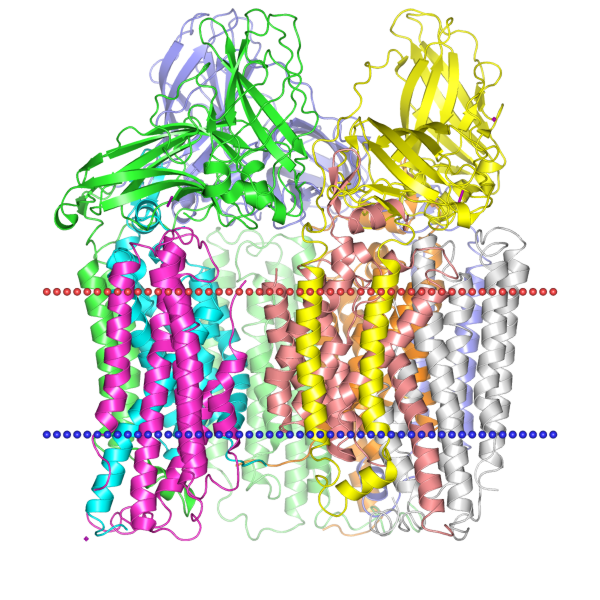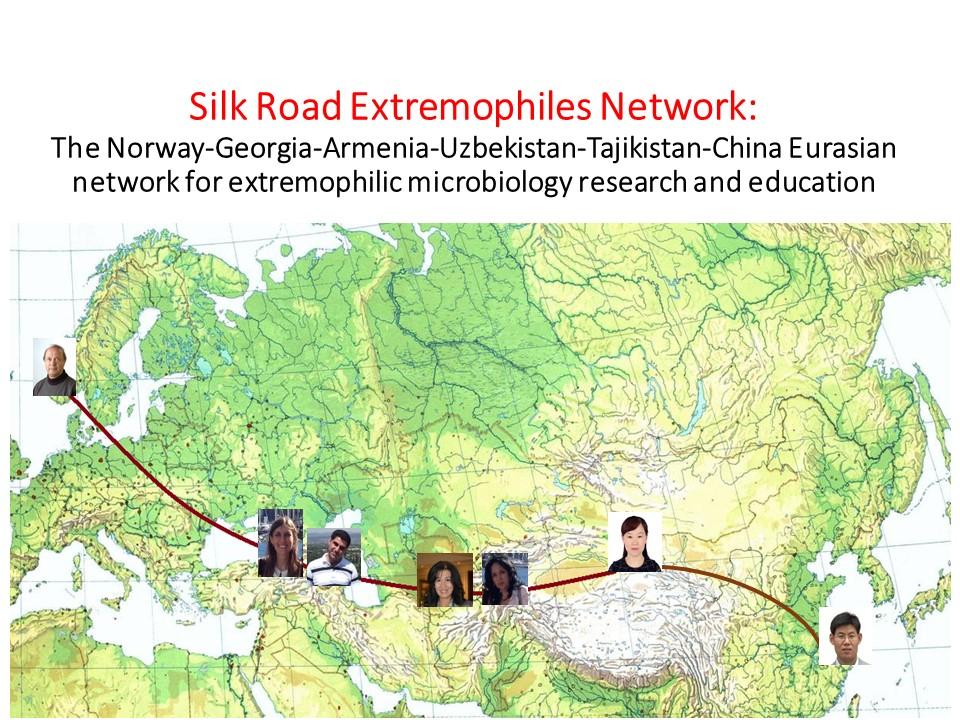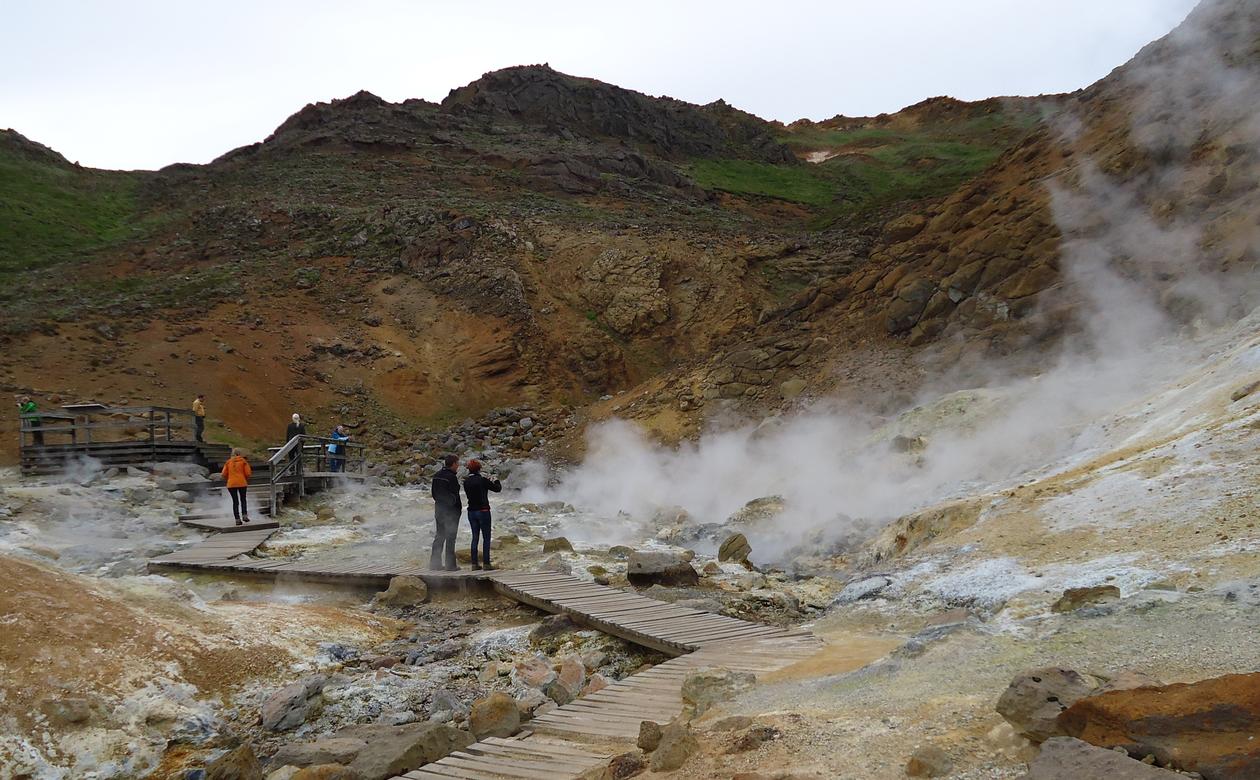NEW MICROBIOLOGY PROJECTS
Extremophiles in the spotlight: More funding for research, networking and education
Biotechnology, molecular biology, diversity and evolution

Hovedinnhold
Oppdatert: 04.05.2017 (Først publisert: 03.05.2017)
About 20 million NOK has been granted to the General Microbiology research group at BIO for extremophiles research, education and networking for the next 3 - 4 years. An extremophile is an organism that thrives in physically or geochemically extreme conditions that are detrimental to most life on earth, e.g. in geothermal environments, under extreme pH values, or under extremely cold, saline or arid conditions. Most extremophiles belong to the Archaeal or Bacterial domains of life, and represent important microorganisms for understanding of early life evolution and molecular adaptations, as well as important sources for novel biotechnology applications.
- Methane oxidation by extremophilic bacteria (Verrucomicrobia) adapted to geothermal environments (METEX). This project is funded by the FRIMEDBIO program of the Research Council of Norway and UiB. Partners are from the Northwestern University, Illinois, USA; the International Research Institute of Stavanger (IRIS) and Calysta Inc. The project aims to enhance the basic understanding of the mechanism, regulation and evolution of biological methane oxidation, with focus on heat- and acid-adapted ("thermo-acidophilic") methanotrophic bacteria thriving in volcanic environments.
- Thermostable isomerase processes for biotechnology (TIPs). Funded by ERA-IB/BIOTEK2021. Partners are from IRNAS-CSIC, Sevilla, Spain and Christian-Albrechts-Universität Kiel, Germany. The aim is to provide heat-stable isomerase enzymes from extremophiles for industrial biocatalysis through gene mining, enzyme characterization and structural biology.
- Network for improving research based higher education in basic and applied microbiology. Funded by SIU’s EURASIA program with partners from key research institutions and universities in Armenia, Georgia, Tajikistan, Uzbekistan and China. The main aim is to strengthen higher education in microbiology in Eurasia and develop long-lasting academic relationships within this region as well as with Norway through collaboration, student exchange, joint supervision and workshops using extreme environments as a thematic area. The Environmental Toxicology group at BIO is also participating. Study sites include extreme environments like geothermal springs, the Aral Sea, deserts, salines and arid soils.


